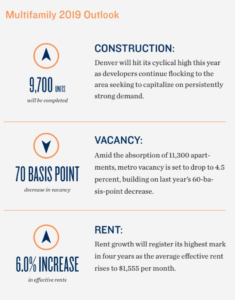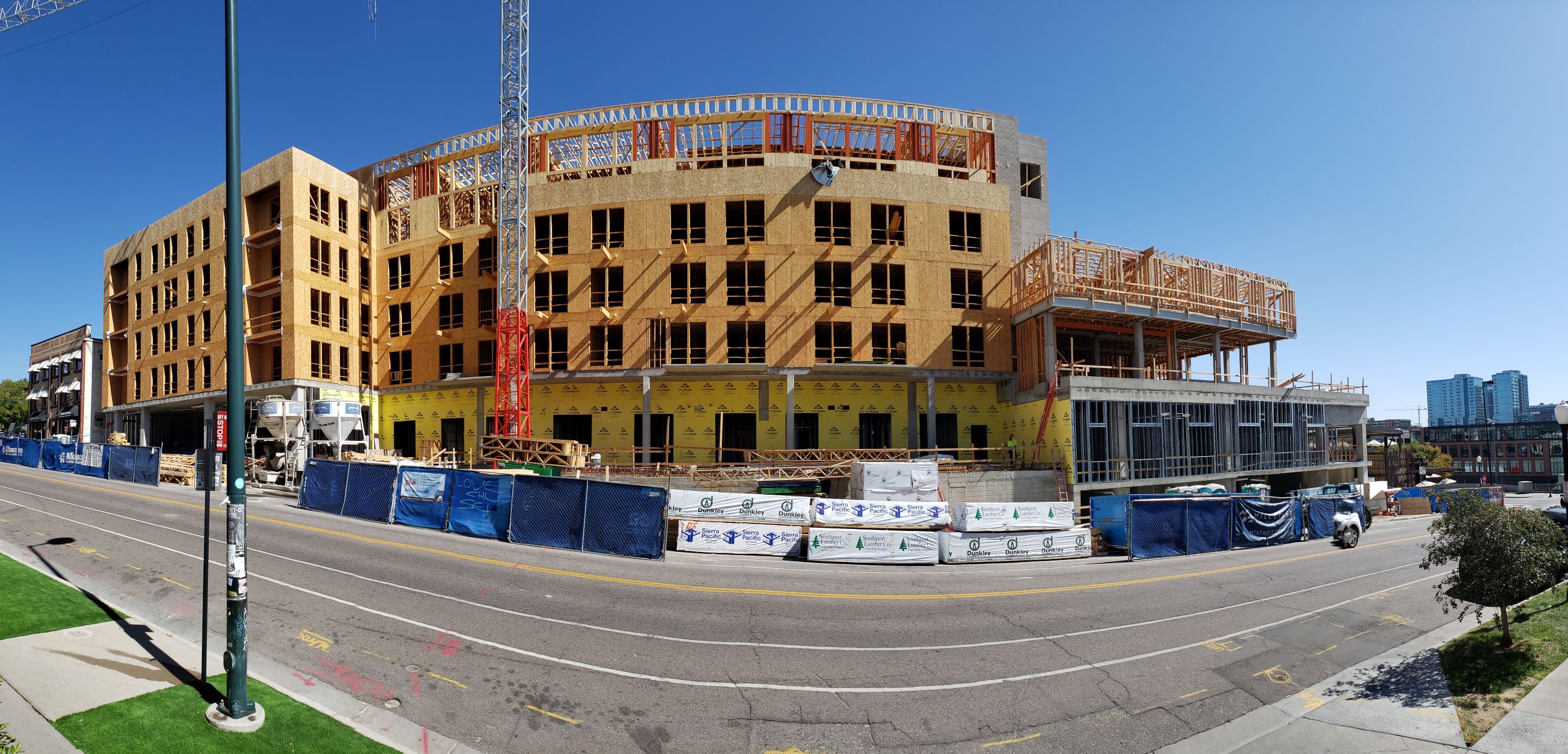Increasing development remains overshadowed by strengthening demand as the Denver metro is on track to log a 130-basis-point drop in two years amid the completion of 19,000 units, according to Marcus & Millichap’s fourth quarter Multifamily Outlook report. High-wage jobs in the urban core and Tech Center continue to benefit Class A apartments, pushing vacancy into the mid-4 percent range.
 Workforce housing is also witnessing strong demand, buoyed by Denver’s 2.7 percent unemployment rate. With a diverse pool of incoming jobs from firms like Robinhood and ViewRay Inc., apartment demand will continue to grow, pushing development to new highs. There are more than 16,000 apartments underway in the market, with delivery dates extending into 2021. Owners of existing properties are also taking note of the robust demand trends, realigning rents to meet market conditions, particularly in the Class C segment, where vacancy sits under 4 percent.
Workforce housing is also witnessing strong demand, buoyed by Denver’s 2.7 percent unemployment rate. With a diverse pool of incoming jobs from firms like Robinhood and ViewRay Inc., apartment demand will continue to grow, pushing development to new highs. There are more than 16,000 apartments underway in the market, with delivery dates extending into 2021. Owners of existing properties are also taking note of the robust demand trends, realigning rents to meet market conditions, particularly in the Class C segment, where vacancy sits under 4 percent.
Development will finish out the year strong as more than 2,700 units on track for a fourth-quarter delivery. The urban core will receive 40 percent of that total, highlighted by 350-plus unit complexes in Five Points as well as just west of Empower Field, where various revitalization efforts are occurring. Remaining completions will be scattered across the metro, with some notable developments in Arvada, Littleton and Southeast Aurora. Substantially tight vacancy will continue to lure builders to the Mile High City, sustaining increased construction in 2019 and beyond.
Investment Trends
• West Coast buyers remain integral to Denver’s investment market, homing in on a variety of properties as they seek yields up to 150 basis points higher than those found in their local markets. While downtown attracts some institutional groups, private investors look just outside the city center in neighborhoods such as Capitol Hill and Washington Park. In these areas, cap rates generally sit in the low-5 percent range for smaller Class B assets.
• Value-add properties in the West Colfax corridor remain highly targeted as recent light rail extensions to the area have boosted investment appeal. First-year returns reaching the upper-7 percent band pique the interest of many local investors searching for properties with high-growth potential.
• With the metro quickly expanding east, North Aurora is gaining investor interest as buyers focus on the area’s strong outlook. Over the past year, units generally sold for prices well below the metro average, indicating room for significantly more growth in the near future.









